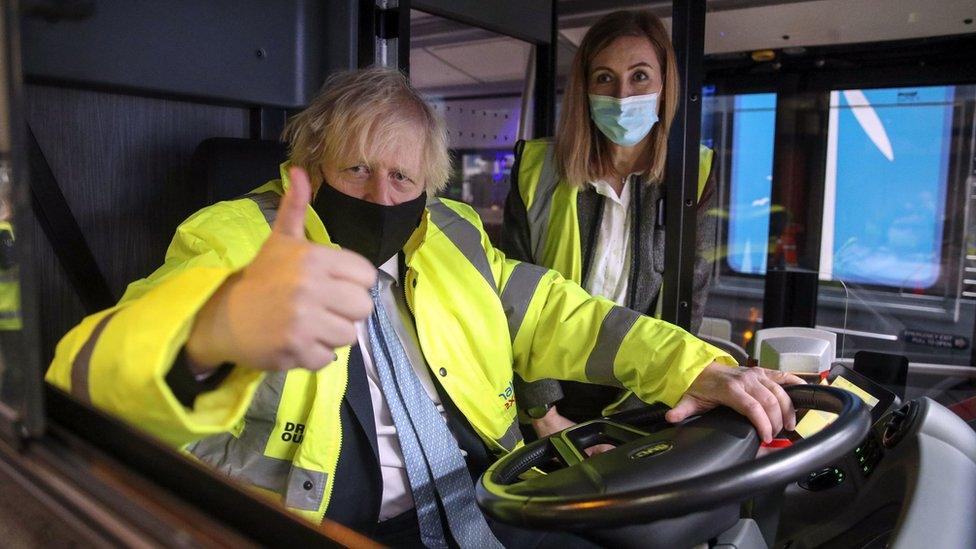Election 2021: Bus services a 'vital' lifeline
- Published
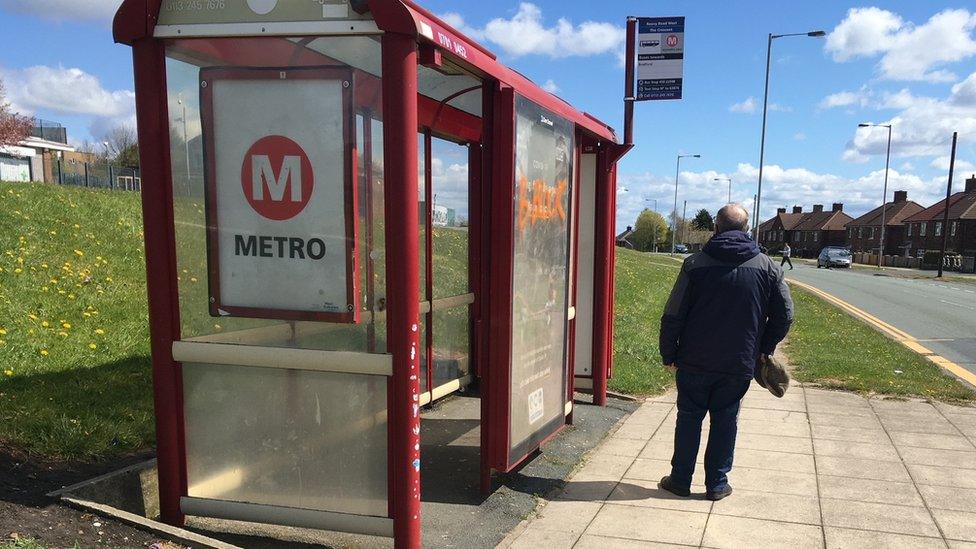
Ex bus-driver William Thomas (not his real name) says good bus services are a key part of communities
Buses and their drivers are a "vital" lifeline for communities, according to one former driver. As lockdown restrictions begin to ease, it's hoped passengers will start returning to their local services. But will the impact of the pandemic see already stretched routes further reduced or even cancelled? And what could it mean for those who rely upon them?
"They stop me going potty. I get so fed up looking at the same four walls," says William Thomas.
The 66-year-old, from Buttershaw, Bradford, spent thirty years driving buses and has remained a frequent passenger since retiring.
William, who has Parkinson's disease, says being able to access a bus service is essential. He is able to take short walks with the use of a cane, and, before the pandemic hit, would enjoy taking trips into Bradford city centre to "see the cathedral or nip into a few shops."
William, who asked not to use his real name, remembers a time when the bus was not simply an essential form of transport, but a key cog in the functioning and togetherness of communities.
"My colleagues and I used to joke that we were like unpaid social workers too," he says. "I once drove a service that passed by an elderly man a few times a week. Sometimes he'd be too unwell to travel and would ask me to pop by the shops and pick him up some eggs and a bottle of milk. The other drivers and I were always happy to.
"Lots of areas have lost that community spirit, which is a real shame. But buses are no less vital."
William says key workers often have to rely on buses.
"These kinds of jobs might seem unimportant to some, but the collective importance to the community as a whole can't be underestimated," he says.
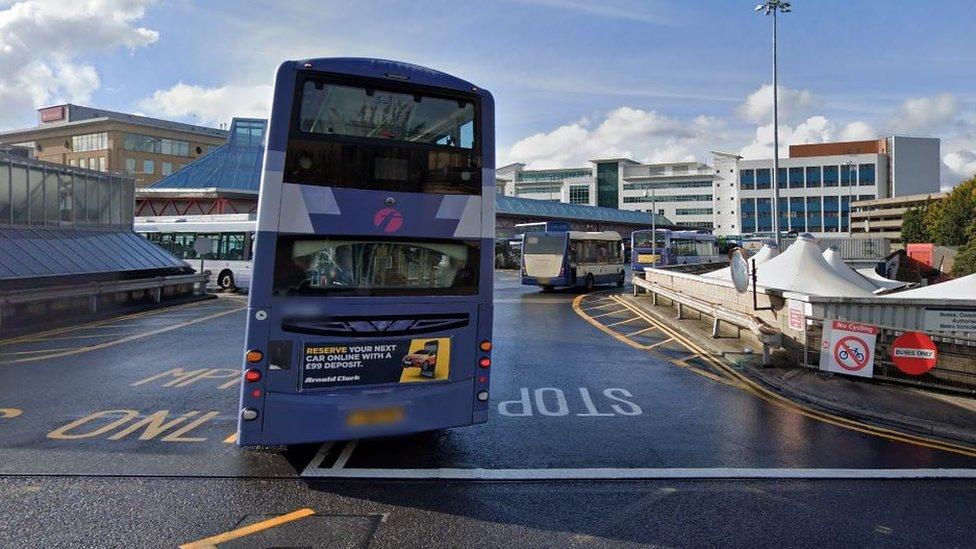
Prior to the pandemic an average of 5.8 million people across the UK used buses
According to government figures, an average of 5.8 million people across the UK used buses daily before the pandemic.
But during the first lockdown last March operators saw only about 10% of their usual passenger numbers.
William has had concerns about dwindling services for some time, and worries about the lasting impact of the pandemic.
"Cancelling or reducing one service because less people are using buses, so they're no longer as profitable, doesn't just impact the users, but all the people who are relying on them to get to their destination," he says.
Tom Bartošák-Harlow, from the Confederation of Passenger Transport (CPT), says operators have benefited from £1bn in government cash to make up for lost fares.
Passenger numbers, too, have risen to about 55 to 65% of pre-pandemic levels, he says, though believes they will not fully bounce back for some time.
That is why the National Bus Strategy, announced in February, is so crucial, he says.
Dawn Badminton-Capps of charity Bus Users says the government has promised £3bn to make buses cheaper and greener and build partnerships between local authorities and operators in the hope of improving services.
"The plans are very ambitious, but there has to be sufficient money involved," she warns.
She says cuts to local authority budgets have seen a decline in services across the country, something that is particularly evident in rural areas and on the outskirts of towns and cities.
"Passenger numbers just aren't what they need to be to keep necessary services running," she says.
With the elections for a West Yorkshire mayor on 6 May, Mr Bartošák-Harlow said a partnership with operators would be needed for a "double-pronged" approach.
"For example, the mayor might agree to install new bus lanes to ensure road priority, while the operator might agree to a certain frequency of services. Both steps will work in tandem to improve bus regularity," he said.
Paul Matthews, managing director of First West Yorkshire, said they worked closely with partners and the West Yorkshire Combined Authority to tackle changes in demand.
"We believe the bus is going to be a key component of economic recovery," he says.
William, who is looking forward to his next bus trip as coronavirus restrictions begin to ease, says he hopes the politicians will think about how important a reliable service is.
"We shouldn't think of any next steps in terms of left or right-wing politics. It's about humanity and taking care of everyone equally."
You can read more about the West Yorkshire mayor candidates' views on transport here.

ENGLAND'S ELECTIONS: THE BASICS
What elections are happening? On 6 May across England millions of people will be voting for new councillors, mayors and police and crime commissioners. Register to vote here, external.
Why does it matter? When political parties win control of a council, they decide policies for your area which could affect services ranging from social care to rubbish collection. Read on what councils do.
How do I vote? Not all councils are up for election, and not every area has a mayor, but everyone in England will be voting for someone in the their local area - find yours here.

- Published12 April 2021
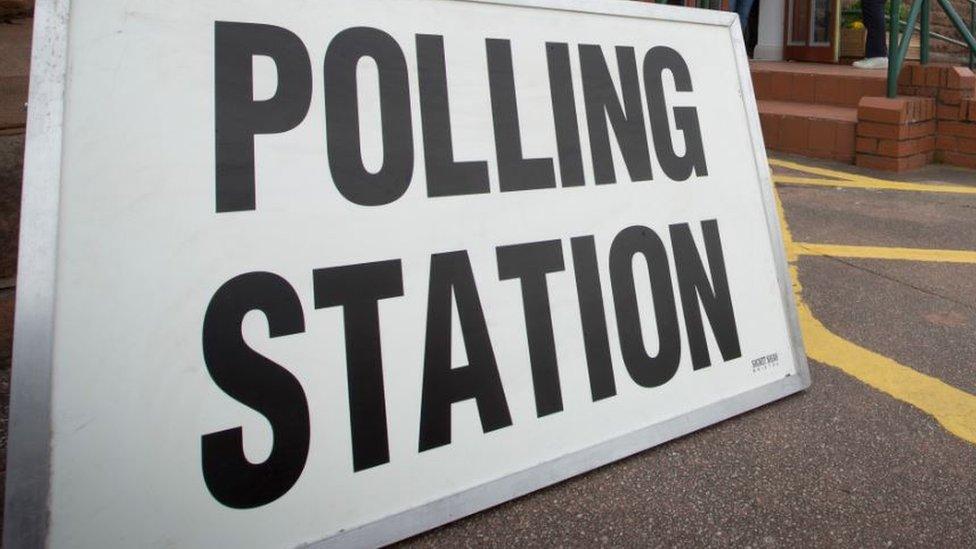
- Published23 April 2021
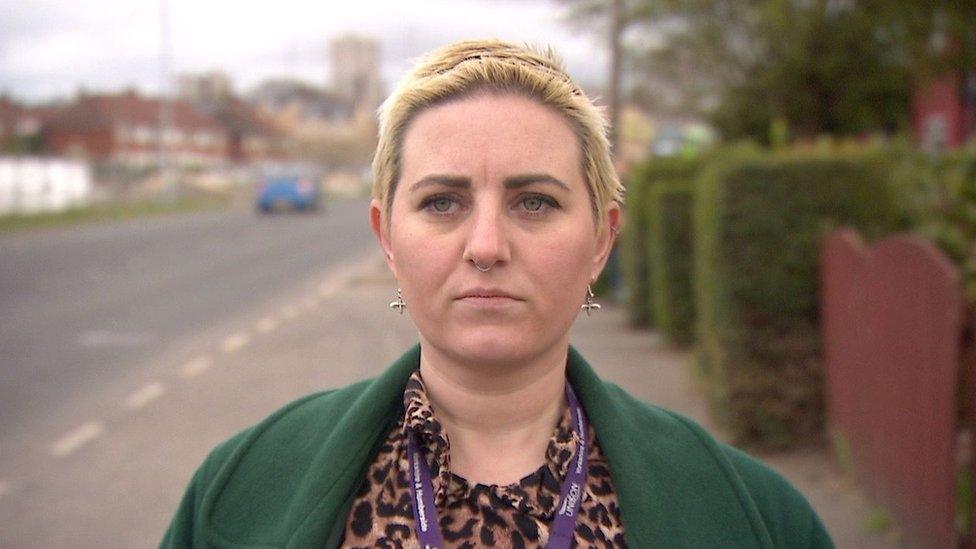
- Published15 March 2021
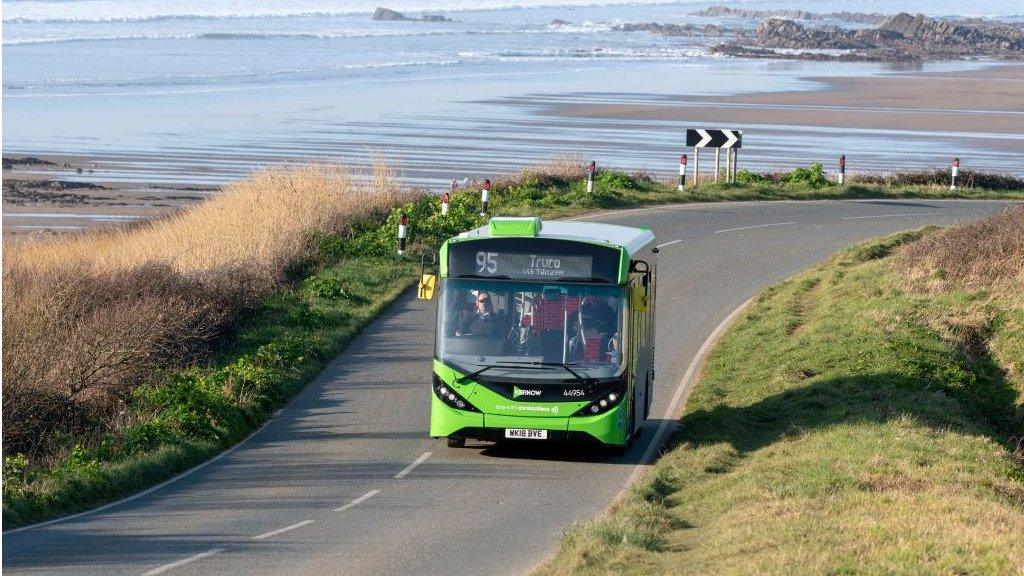
- Published15 March 2021
